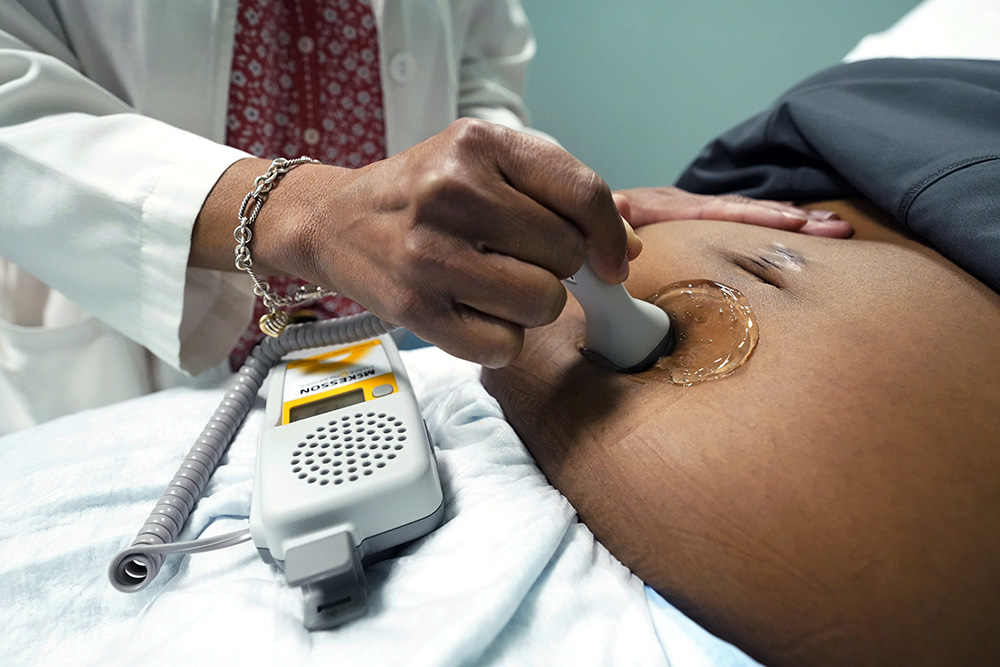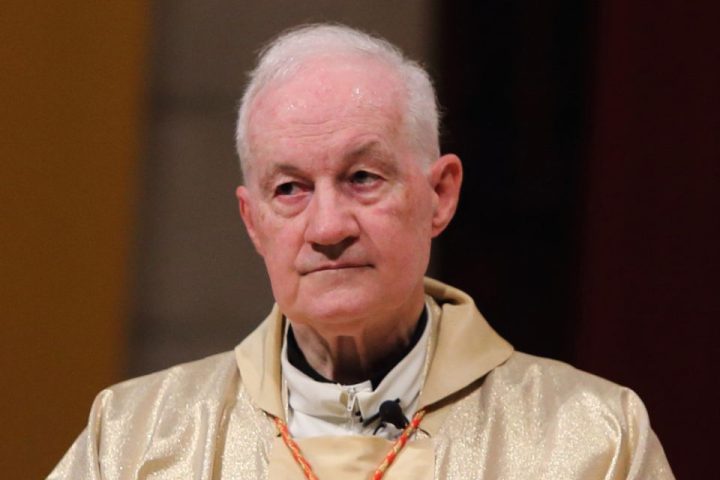
For many African American women, delivering a baby has become a death sentence.
The Centers for Disease Control and Prevention reports that Black women are nearly three times more likely than white women to die from a pregnancy-related cause. In light of this disheartening medical statistic, it’s imperative that any agency or organization that interacts with medicine and Black women should understand the nature of the problem.
The Catholic Church recognizes, perhaps more than any other religious group, the need for building a culture wherein all phases of life are valued as sacred. Pope St. John Paul II called for « radical solidarity » for those on the margins who are planning to have a baby, and Bishop Michael Burbidge of Arlington, Virginia* — chairman of U.S. Conference of Catholic Bishops’ Committee on Pro-Life Activities — invited us just last month to understand how to better embrace our neighbor in their journey toward choosing life.
Initially, when I saw the phrase from the pope, I thought he was calling for « racial solidarity, » and that made some connection with me. Given that John Paul II addressed Black Catholics when he visited New Orleans in 1987, he seemed to understand some of the longstanding injustice African Americans experience. I figured his recognition of our disproportionate outcomes could have been the much-needed charge for the church to dismantle a system clearly designed against the well-being of the Black family.
But to quote the Geto Boys, my mind was playing tricks on me.
If we want to have serious discourse about being pro-life, it’s imperative that we as church put the issue of maternal health at the forefront of the movement. What Black women and couples need, especially right now, are the megaphones amplifying this topic — tied to action.
Firstly, the bishops must understand the real concern of structural racism in our medical system. Because they published « Open Wide Our Hearts, » they possess at least a shallow understanding of how multi-faced racism is for Black people in this country. Yet, despite them creating a pastoral document and in it addressing the historic nature of our problem, they seem to fail to understand the pernicious system of white supremacy in our social institutions.
It was in recent American history that Black men were the victims of secret medical experiments. Likewise, Black women were forcefully sterilized in the name of American medicine. The beloved pro-life freedom fighter Fannie Lou Hamer was a victim of the savage practice while receiving cancer treatment.
Segregation in medicine was only abolished some 60 years ago and many states sluggishly implemented federal guidelines only years after being ordered to. To think that in two to three generations, America entered a utopian fantasy is ludicrous, and the false delusion of a post-racial society is one of the most tragic lies advanced since African Americans started making gains in society. It isn’t far-fetched to think exploitation and neglect still pulsate through the veins of American medicine.
Advertisement
Subtle prejudices and long-standing false beliefs about Black people play a significant role in the quality of care they experience. For example, research has documented that health care professionals are less likely to perceive pain in Black people’s faces than white faces. As a result, health providers perpetuate myths regarding Blacks as thick-skinned or more immune to pain.
Further, Black women are aware of bias in the quality of care during their past medical experiences. Racist assumptions from health care providers concerning Black women reportedly have a significant impact on their actions, such as disregarding symptoms and pain that put pregnant Black women in peril.
Moreover, given the current strained relationship between Black Catholics and the church, the hierarchy adding its voice to bolster action on Black health concerns could be an important step and possibly a bridge to evangelization. Considering that Black Catholics demand a church that addresses their material needs, embracing the nation’s 3 million Black Catholics in this way would surely be welcomed.
For starters, the bishops should receive education on the tragic history of medical racism in the country, which has furthered discrimination and harm from colonial times to the present day. This type of awareness is a prerequisite to embracing Black Americans in a way that is racially and culturally competent.
In addition, the church’s flourishing free or low-cost human services provide a way to meet Black women and couples with health education. As Servant of God Thea Bowman proclaimed, many Black Americans came to Catholicism through education; the local church and its organizations have always been close to our experience. Instead of lukewarm statements, go into our communities with the lightpost of respecting life’s sacredness and meet the countless people who need resources. By acting in this missionary role, the church can play a significant role in improving health equity.
Yes, the abortion crisis in Black America is a massive issue, but the institutional neglect of the Black mother’s well-being is an indictment of the pro-life movement.
Plenty of Catholic Charities and diocesan clinics already extend support and education concerning pregnancy, so adding a much-needed health component that focuses on Black women and their support person(s) could have a real impact in decreasing disparities. By raising awareness of preexisting conditions and severe health complications, the seeds for access to quality care can be planted.
But even if the church leadership fails to advocate, we as Black Catholics and Americans have to depend on our community to unite to discuss common-sense ways that we will display collective ownership and racial solidarity to ensure Black women are supported.
Some of my frustration is rooted in the pro-life movement’s cherry-picking when it comes to the dignity of Black life. Conservative leaders are quick to mention the proximity of Planned Parenthood and abortion statistics in Black communities, but all-too-revealing is their deafening silence on whether a Black woman can deliver a baby and not face a death sentence in the process.
Yes, the abortion crisis in Black America is a massive issue, but the institutional neglect of the Black mother’s well-being is an indictment of the pro-life movement. Essentially, what’s reinforced is that babies matter most while the mother and her postpartum experience is of least concern. This blatantly one-sided advocacy, an exploitation of African-descended people, is why we don’t buy the messaging of the modern movement.
Instead, the true movement led by Black Catholics must involve us pulling our talents and strengths together to ensure that we receive justice in care. There are far too many trained social workers, medical professionals, and educators in our own community for us not to be equipped with adequate training and support.
I’d love to see our Black doulas offer support during the gestation, labor and postpartum phases to provide comprehensive support to women and couples. The empirical data on doulas demonstrates that they are cost-effective experts who positively impact pregnant women. These trained health providers are a necessary component to decrease Black maternal death rates.
Through an interdisciplinary approach aimed at reversing the dire state of Black maternal health, we need to advocate for our society to change. To demand our health care system be free from bias and racism is consistent with our Catholic values of building a just society that enables everyone to participate fully.
As Catholics in the body of Christ, the importance of a consistent life ethic for Black people is key. Stand for Black people not just in the womb but in the delivery room, the postpartum period, and beyond. Be true to what the Catechism of the Catholic Church affirms when it says that everyone should work to support and create institutions that promote the well-being of human life.
As John Paul II proclaimed in his speech to Black Catholics, the church must work to rectify disparities. In keeping with his charge, seeing the issue of Black maternal health with a critical eye is how we can ensure healthy equity for the most despised and rejected race in the country.
* This story has been changed to fix an editing error identifying the wrong state.


